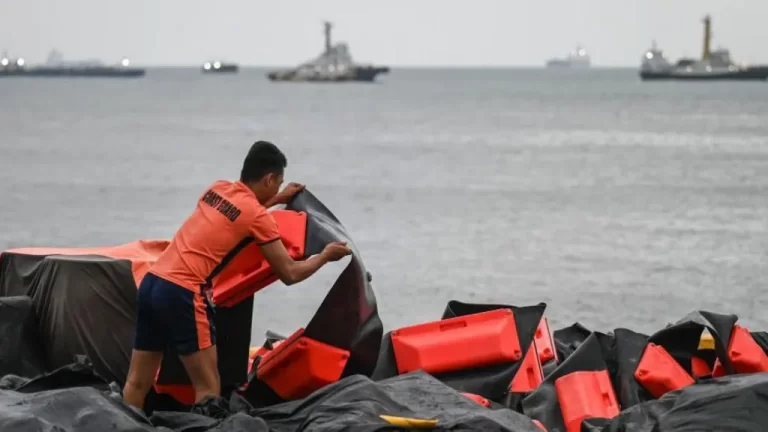The Philippine Coast Guard is preparing to deploy floating barriers and suction hoses to contain an oil spill and prevent it from reaching the capital, Manila. Authorities are racing to stop the oil spill from the MT Terra Nova, which capsized on Thursday as monsoon rains battered large swathes of the country.
The leak appeared to be coming from the ship's engine, not its cargo tank, which was carrying close to 1.5 million litres of industrial fuel, officials said. An “enormous” spill stretching out over several kilometres has been detected and there are fears that the oil spill could be the worst in the country's history if it is not contained.
The coast guard is “preparing for the worst”, said Rear Admiral Armand Balilo, the coast guard spokesman.
“We are talking about industrial fuel here… It will definitely affect the marine environment and could even reach us here in Manila,” he said.
Hernando Bacosa, an environmental sciences expert at the Mindanao State University, told the BBC that the amount of oil the vessel was carrying would warrant the issuance of the country's highest oil spill alert.
“Manila Bay is where the Port of Manila is, the biggest port in the Philippines and the center of trade and economic activity. This could possibly paralyse the capital and the neighbouring areas,” he said.

The monsoon rains, which were worsened by Typhoon Gaemi, also caused widespread flooding across Metro Manila and its suburbs. The MT Terra Nova was one of two ships which sank in the region during the typhoon, with the second going down just off Taiwan's south-western coast.
It was heading for the central Philippine city of Iloilo when it sank, with 17 crew members on board. One died, but 16 were rescued, officials said. Authorities are investigating whether bad weather was a factor.
“They felt that the waves were really strong. The captain decided to return to shore, but it was difficult because they are sailing against the waves. They said the ship scooped up water until it eventually capsized,” Rear Adm Balilo said.
— CutC by bbc.com


